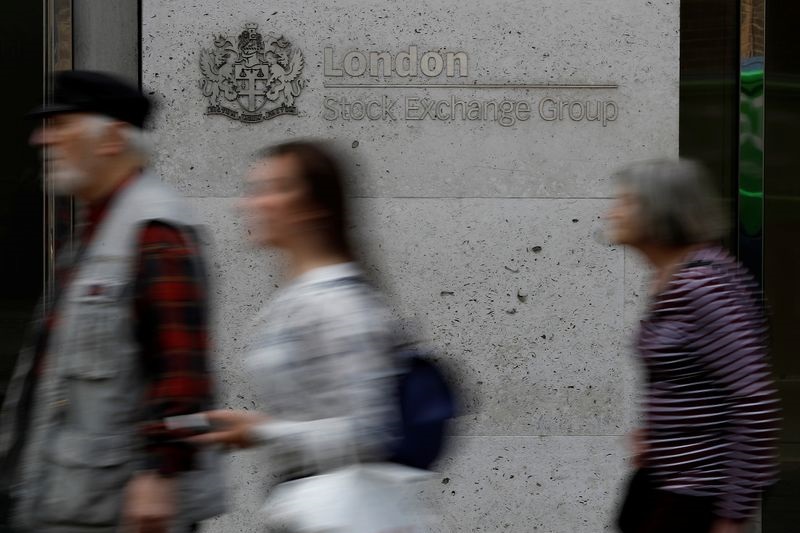Proactive Investors -
- FTSE 100 up 4 points at 7,417
- Metro Bank slumps - reviewing options, no decision made
- Goldman backs $100/barrel oil forecast despite price slide
BoE inflation survey shows slight pick up in expectations
The Bank of England’s latest inflation expectations report is out, showing a slight increase for CPI predictions.
The Decision Maker Panel survey, which involves chief financial officers from across UK businesses, showed one-year ahead CPI expectations increased to 4.9% in September, from 4.8% in August.
Three-year ahead CPI inflation expectations remained flat at 3.2% in September, the same value as the August figure.
However, the three-month moving average for the survey still fell to 5%. Year-ahead wage growth expectations were unchanged.
Output price inflation is seen falling further over the coming year, which chimes with what we’ve heard from companies across sectors in recent weeks.
Firms reported that their output prices rose by an average annual rate of 7.4% in the three months to September; the rate was unchanged for third consecutive month.
ING Economics said while policymakers appear wary about putting too much emphasis on surveys, but the findings do bolster the case for another "on hold" decision in November.
There are, however, two caveats to bear in mind, it said.
"Firstly, the survey has consistently shown that “realised” price/wage growth has been higher than what firms are projecting for the future."
"In other words, companies are saying they expect to do one thing and ultimately, they're ending up acting more aggressively, as the chart below shows," it explained.
Housebuilding slides, dragging construction lower
The UK’s construction sector started contracting again in September, according to latest figures.
The latest S&P Global/CIPS construction purchasing managers’ index was 45.0 in September, a steep drop from 50.8 in August, the first contraction since June.
The report showed all three main segments of construction work posted a reduction in business activity, led by a steep and accelerated fall in house building.
Residential work (index at 38.1) was by far the worstperforming area of construction output during September, which aside from the pandemic, was the steepest since April 2009.
Civil engineering activity registered 45.7 while commercial building declined at only a modest pace in September (index at 47.7), a considerable setback after the solid growth seen throughout the summer.
Tim Moore, economics director at S&P Global Market Intelligence, said: "Output levels declined across the UK construction sector for the first time in three months during September and the latest downturn marked the worst overall performance since the early stages of the pandemic."
"A rapid decline in house building activity acted as a major drag on workloads, with construction companies widely commenting on cutbacks to new residential development projects in the wake of sluggish demand and rising borrowing costs," he added.
Goldman sticks to $100/barrel forecast despite oil price falls
Goldman Sachs (NYSE:GS) believes the selloff in Brent of 6% yesterday and 11% over the past week reflects three main factors, which it thinks will prove to be transitory.
First, very weak US Department of Energy (DoE) data on gasoline demand and inventories have amplified a sharp selloff in gasoline margins, which has spilled over into crude markets.
“We see this as overdone because alternative measures of demand implied by ethanol blending and from the DoE and physical prices suggest demand remains robust.”
As a result, it thinks that resilient underlying demand, low stocks, and refiners’ supply response will ultimately provide support to gasoline margins.
Second, yesterday’s shift in the crude futures curve, and conversations suggest investors worry again about a rates-driven 2024 recession.
While higher rates will likely weigh on GDP and oil demand growth, the soft landing remains on track as the impulse from financial conditions to 2024 US growth is only modestly negative (-¼pp), and as global core inflation is falling quickly, Goldman believes.
Third, technical factors, including last Friday’s expiration of the November Brent contract and CTA selling, have likely contributed to the decline in prompt Brent futures contract, the bank said.
“While a significant recovery in crude prices likely requires a recovery in gasoline margins, some stabilization in financial conditions, and evidence of stock draws, we expect all three of these drivers to play out,” it said.
The investment bank reckons robust demand and elevated pricing power will allow OPEC to keep Brent in a $80-$105/bbl range, and in particular to push Brent to $100/bbl by next spring.
